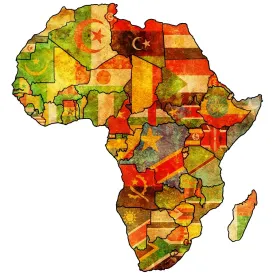In the face of low commodity prices and concerns about China’s economic health, Kenya and Nigeria are turning to their own citizens — both home and abroad — as an alternative source of financing.
In Kenya, the Treasury has launched the M-Akiba Bond, “the first-ever government bond offered exclusively via mobile phone.” A high rate of public participation is a clear goal of this new bond program. In addition to leveraging the deep mobile penetration and widespread popularity of mobile money, the M-Akiba Bond allows a significantly lower minimum investment — 3,000 Kenya shillings rather than 50,000 Kenya shillings — than other government bonds. Other goals for the program are to improve financial inclusion and encourage increased investment and savings by Kenyans.
In Nigeria, President Buhari is moving forward with his predecessor’s plan to issue a bond aimed at the country’s diaspora. Late last month, President Buhari sought approval from the Nigerian legislature to increase the amount proposed to be raised from $100 million to a maximum of $300 million due to the “‘huge amount of capital’ required to bridge the infrastructure gap in the country.” With inflows in 2014 estimated to be around $21 billion, Nigeria already is Africa’s top recipient of foreign remittance. However, foreign remittances traditionally are sent to relatives in order to address their household needs or, more recently, to start new businesses or support existing ones in climates where “capital constraints are severe.” In order to persuade the diaspora to send remittances into government coffers as well, the Nigerian government must instill confidence that it is a deserved recipient and that received funds will be used responsibly.
Both countries are regarded as trendsetters on the continent. Thus, it is likely that other governments also will seek to get creative about how they finance their ongoing development.



 />i
/>i
